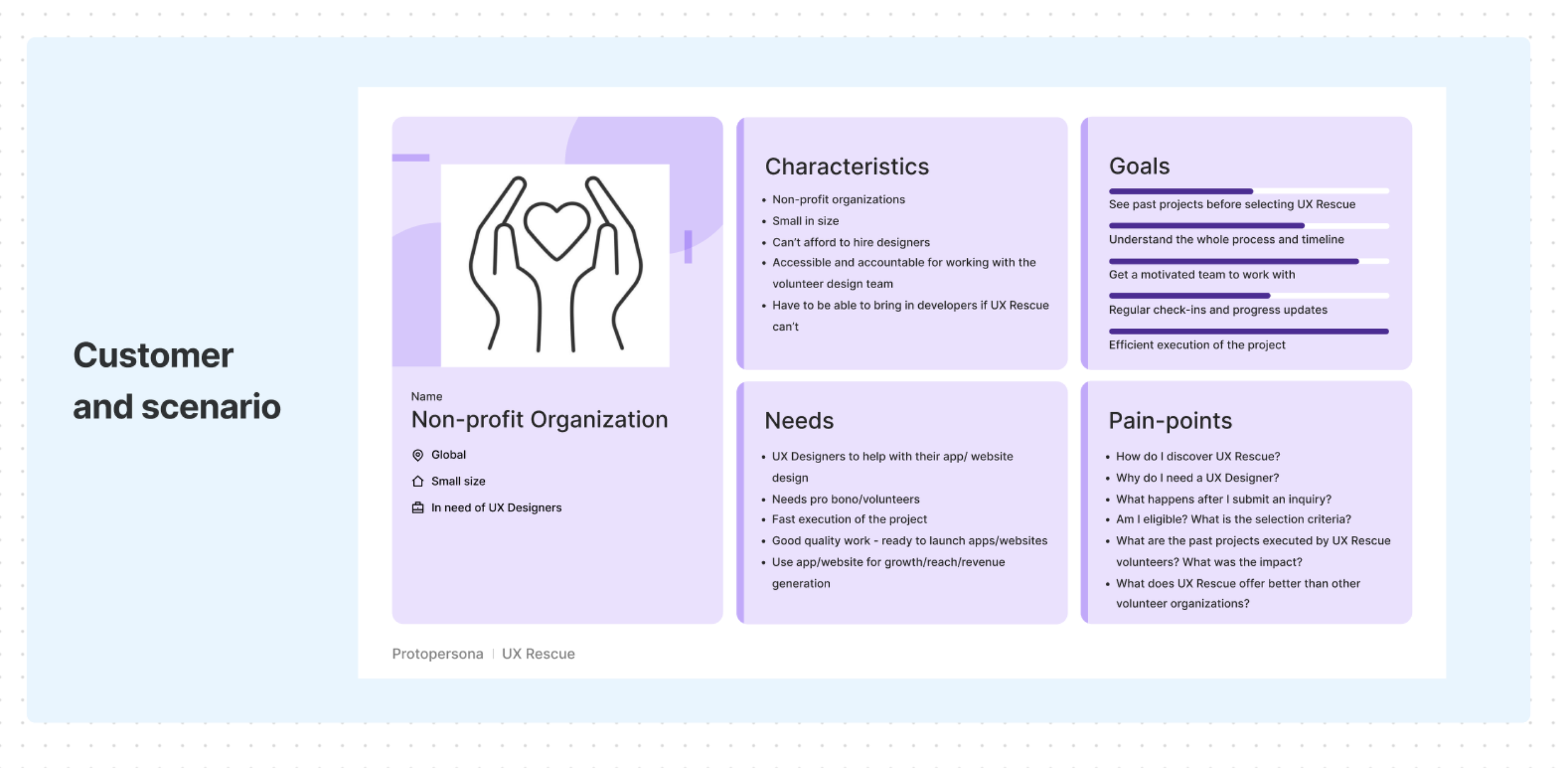
CLIENT
UX Rescue
UX Rescue is an organization that connects small nonprofits (NPOs) who need a UX service with volunteers.
UX Rescue seeks to increase their exposure to organizations in order to create enough project opportunities for their volunteers.
THE PROBLEM
THE SOLUTION
METHODOLOGY
INFO
TEAM
Project Manager
Service Designers (3)
UX Researchers (2)
MY ROLE
Service Designer
TIMELINE
8 Weeks
Stakeholder Questions
• Collect more information on UX Rescue’s current outreach strategy and clarification on project goalsPast Client Analysis
• Evaluate the efficacy of UX Rescue’s past outreach strategies and how organizations attain volunteers in addition to how it differs across organizations that do or do not meet UX Rescue’s criteriaCompetitive Analysis
• Evaluate how other organizations evaluate themselves and what strengths UX Rescue can take inspiration fromSWOT Analysis
•Spot pain points organizations come across when choosing to work with UX Rescue
STAKEHOLDER QUESTION FINDINGS
UX RESEARCH INSIGHTS
What was common across organizations who contacted UX Rescue?
What differed among organizations who contacted UX Rescue that met/did not meet UX Rescue’s criteria?
COMPETITIVE ANALYSIS
Similar organizations connect with their clients and volunteers using other methods than recruiting for projects (mentorship, panels).
Other volunteer organizations allow clients to propose, post, promote their projects by themselves.
Each organization is connected to charities, job boards, and have good SEO and social media presence.
SWOT ANALYSIS
To better understand the exact needs of potential customers, I created an empathy map to organize the requirements, frustrations, and goals. This helped to illustrate the exact needs of the customers.
PROTO PERSONA
• Optimize information architecture
•Detailed explanation of services available to
organizations
•Highlight testimonials, case studies, partnerships
•Verify inquiry form is functioning properly
Created a Proto Persona to better understand who are the users of this service, the aspirations for organizations, and their expectations.
This served as a guide when creating the service blueprint.
RESULTS - SERVICE BLUEPRINT
From research, I learned that organizations have a lack of understanding of UX and also have different ways to look for volunteers than where UX Rescue markets themselves.
After developing a better understanding of its customers, it was time to craft the insights and ideas into a service blueprint. I chose a service blueprint for the following reasons:
1. Discover weaknesses
• Helps to identify the possible internal or external barriers working against a service
• Pinpoint the root cause of the issue by visualizing the areas that may affect the organization
2. Identify Opportunities
• The visualization of the organization’s relationships helps to identify creative ways to work around any
barriers or limitations and showcase potential improvements
IMPACT
Because of our findings and work, UX Rescue started posting online again
• Received 6 new leads that fit criteria in a few weeks
• That’s 5x more than before for the same timeframeThe organization created short-term projects which provided new opportunities for 9 volunteers
A major UX issue in the sign-up flow was identified
• Helped to increase sign-up rate








